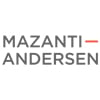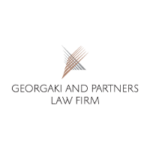-
What are the key rules/laws relevant to M&A and who are the key regulatory authorities?
The key laws relevant to M&A in the Dominican Republic are the Commercial Code and Law No. 479-08 of Business Companies and Limited Liability Individual Enterprises, and their respective amendments, including Law No. 31-11. Law 479-08 defines the term “merger” as the transfer of the assets and liabilities of an existing company to an existing or new company that its formed. The shareholders of the company that transfer its assets will receive shares of the beneficiary company or companies. These shareholders may also receive a cash balance, but it shall not exceed one tenth (1/10) of the nominal value of the received or attributed shares.
The key regulatory authorities are the Chambers of Commerce and Production, pursuant to the provisions of Law 479-08, as well as the corresponding regulators in the event of regulated industries. It is important to note that even though Law No. 42-08 on the Defense of Competition regulates dominant positions and restricts certain conducts, the National Commission for the Defense of Competition created by said law is not entitled to review and approve mergers and acquisitions. Such approval process would fall, as applicable, under the corresponding regulators.
-
What is the current state of the market?
According to the World Bank, over the past 25 years, the Dominican Republic has experienced a period of economic growth, making it one of the fastest-growing economies in Latin America and the Caribbean. Pursuant to the World Bank, the forecasted GDP growth for the Dominican Republic for 2023 is 4.6%, which adds up on an important 4.9% and 12.3% growth during 2022 and 2021, respectively, as it rapidly recovered from a -6.7% decrease in 2020 as a result of the coronavirus pandemic. The past years have seen important M&A activity in the country, which have been led by both local and foreign investors. Together with the relevant M&A activity, major foreign investments have taken place as well.
-
Which market sectors have been particularly active recently?
Recovering from the impact of the 2020 pandemic, tourism has been growing rapidly in the Dominican Republic. Also, a notable growth in the finance sector has been noted, as according to data from the Superintendence of Banks, financial intermediation entities recorded an increase in assets of RD$386,635.6 million (approximately US$6.9 billion) as of December 31, 2021, for a year-on-year growth of 16.3%. The Central Bank of the Dominican Republic highlights that, with respect to the breakdown by economic activity for the period January-December 2021, it should be noted that the sectors that recorded the most significant increases in their real added value with respect to 2020 were: hotels, bars and restaurants (39.5%); construction (23.4%); free zone manufacturing (20.3%); transport and storage (12.9%); commerce (12.9%); and local manufacturing (10.6%).
-
What do you believe will be the three most significant factors influencing M&A activity over the next 2 years?
We understand that political, economic, and social stability will play an important factor in influencing M&A activity in the coming years. The stability achieved by the Dominican Republic contrasts with the recent trend experienced in Latin America and the Caribbean whereby important economies and democracies have been adopting political and economic models affecting their short- and long-term growth and social stability.
In addition, it is also notable the modernization of our legal framework, which not only provides a better protection for both local and foreign investors, but also increases the competitiveness of the country. During the last decade, the Dominican Republic has experienced a steady growth in foreign investment and M&A activity. The Dominican Republic is one of the main receptors of direct foreign investment in the region, with an annual average of approximately US$2.585 billion dollars in the past twelve years. The Central Bank of the Dominican Republic found that in the past year alone, direct foreign investment in the Dominican Republic amounted to US$3.085 billion dollars. This has and will continue to heavily influence M&A activity in the country.
Further, the past years have seen significant changes in the Dominican corporate landscape, as family-based corporate models have been evolving gradually in favor of models more in line with international corporate governance standards. Finally, we understand that the formalization and strengthening of new diplomatic relations and the signing of multilateral trade agreements will play an important factor in influencing M&A activity in the coming years, as companies seek new alternatives that contribute to increasing the quality of their services or products, in order to face the challenges of most demanding and sophisticated markets.
-
What are the key means of effecting the acquisition of a publicly traded company?
Pursuant to the provisions of Law No. 249-17 on the Securities Market, the acquisition of a publicly traded company shall be subject to an acquisition offer to be registered and approved by the Superintendence of Securities. In order to support this acquisition project, the projected purchasers shall file the corresponding publications, affidavits and sworn statements made by the representatives of the companies, stating, among other things, that all the acts carried out for such transaction conforms with applicable rules.
-
What information relating to a target company is publicly available and to what extent is a target company obliged to disclose diligence related information to a potential acquirer?
All companies have certain corporate and asset information publicly available in various registries. Chambers of Commerce and Production have publicly available all the incorporation information, shareholders’ list and information, shareholders’ minutes, as well as certain board of directors’ minutes. With respect to assets, the Registrar of Deeds has publicly available all information regarding real estate assets. However, such information is shown based on the description of the property and not on the owner. In other words, once a property has been identified, all information regarding ownership, liens, encumbrances, and other rights, may be obtained through the Registrar of Deeds, but it would not be possible to obtain a list of all real estate assets owned by a company or person.
Further, in general terms, it is also possible to obtain information regarding litigation procedures in which a target company is a party to, as all litigation (but not arbitration) is of public nature in the Dominican Republic. In addition, as the Electronic System for Movable Guaranties became operative a couple of years ago, it is now possible to gather information regarding all movable assets granted as collateral by a company or person.
With respect to publicly traded companies, in addition to such information, it would also be available financial information, as well as further information on corporate structure, assets, business model, among other. All such information is required by the Superintendence of Securities.
On the other hand, regarding any disclosure obligation that target companies may have, in the Dominican Republic such obligation does not exist. If the parties agree, they would need to determine the terms and conditions that would apply to any due diligence that the acquiror may perform.
-
To what level of detail is due diligence customarily undertaken?
The due diligence process is essential to guarantee the success of any type of merger or acquisition. It has been determined that the reasons why mergers and acquisitions fail are, in 39% of cases, the failure to anticipate foreseeable events; 39% pay an excessive price for the acquisition; 35% economic conditions and external situations; 17% non-compatibility of cultures. It is evident from these results that the top three reasons for merger failure can be identified in a due diligence process.
Due diligence is a purely practical aspect for the merger and acquisition process. Due diligence is usually carried out by the teams chosen by the buyer, assigning lawyers to do the legal due diligence and financial advisors to the financial due diligence. This process begins after the initial meetings have been held that allow the buyer, in the event of an acquisition, or both parties, in the event of a merger, to assess the viability of the business under discussion. Customarily, due diligence includes all available information regarding corporate structure, contracts, financings, assets, employment relationships, taxes, liabilities, intellectual property, licenses and permits, environmental matters and litigation, as well as any other matters that may be relevant to for the target company.
-
What are the key decision-making bodies within a target company and what approval rights do shareholders have?
While the Board of Directors of a company is the key decision-making organ for the day-to-day operations, in terms of mergers and acquisition such decision-making organ is the extraordinary shareholders’ meeting. The approval rights regarding mergers, the sale of all or a large portion of a business’s assets and contributions in kind, are subject to a supermajority of shareholders. The minimum quorum for a valid meeting would be 50% plus one share, or 33.33% plus one share for the second call, while resolutions would need at least 66.67% of votes present at the meeting.
-
What are the duties of the directors and controlling shareholders of a target company?
Directors owe basic fiduciary duties to the company’s shareholders, including due diligence, loyalty, and confidentiality, all of which are important in any business combination transaction.
In mergers, the directors must provide a report to the shareholders that includes a summary of the proposed transaction as well as all applicable documentation. If the directors fail to prepare the document setting out the transaction terms and conditions and distribute it to the shareholders within the regulatory deadline, they may face fines. They may also face fines and penalties if they fail to provide to the Superintendence of Securities the documentation required by law for publicly traded companies.
In the case of companies’ combinations, Law 479-08 does not specify any duties owed by the controlling shareholders.
-
Do employees/other stakeholders have any specific approval, consultation or other rights?
No, these negotiations involve only the parties, buyer and seller, and the shareholders on an individual basis when shares are being sold.
-
To what degree is conditionality an accepted market feature on acquisitions?
Conditionality is usually a market feature on acquisitions of regulated companies, as most regulators would need to approve a mergers and acquisition transaction affecting one of its regulated entities. With respect to regular business companies, conditionality is also an accepted market feature although less common. Conditionality could depend on a third-party approval, certain events or the results of the due diligence process, among other things.
-
What steps can an acquirer of a target company take to secure deal exclusivity?
The parties may sign a Memorandum of Understanding (MOU) or Letter of Intent (LOI) establishing the exclusivity of the transaction between the parties. It is important to bear in mind that the MOU or LOI must indicate the binding nature of such document, as under Dominican law MOU and LOI could be binding or non-binding. Subsequently, the parties would execute the corresponding merger agreement further addressing all terms and conditions of the transaction.
-
What other deal protection and costs coverage mechanisms are most frequently used by acquirers?
Escrow and trust services are frequently used to hold portions of the purchase price for certain period. The parties would agree that if events occur during certain period, the escrow agent or trustee would transfer the total amount or a portion of it to the acquiror or, in the absence of such events, to the sellers. Further, parties may also agree to the issuance of notarial promissory notes by the acquiror, granting sellers with enforceable titles to attach and sell assets owned by the acquiror should it fails to pay any outstanding amount from the purchase price.
-
Which forms of consideration are most commonly used?
The most common forms of consideration would be money, both Dominican pesos and U.S. dollars, and shares. Further, depending on the kind of transaction, real estate properties may also be used as consideration.
-
At what ownership levels by an acquirer is public disclosure required (whether acquiring a target company as a whole or a minority stake)?
All acquisition of shares, whether a majority or a minority stake, as well as business assets, would need to be disclosed by either the target company and/or the acquiror. As explained in previous questions, such transactions would need to be approved by shareholders’ meetings which are registered before the corresponding Chambers of Commerce and Production. Once corporate documents are registered before Chambers of Commerce and Production they become subject to public review. Such transactions would also be subject to registration before the General Directorate of Internal Taxes.
Apart from the referred disclosures, extracts of mergers and spin-offs agreements or projects would need to be published in a national newspaper, once approved by the shareholders’ meetings and registered before the Chambers of Commerce and Production. Further, issuers of securities would need to submit these agreements or project to the Superintendence of Securities for approval as well as disclosing it as relevant events. Finally, regulated companies would need to observe any special rules that may apply to them.
-
At what stage of negotiation is public disclosure required or customary?
As analyzed in the previous question, public disclosure of a M&A transaction is only required once the transaction have been approved by the shareholders’ meeting. Depending on the kind of transaction, such disclosure could take effect upon the registration of the corresponding minutes before the Chambers of Commerce and Production, and could also entail the disclosure of the transaction through a national newspaper and/or to the Superintendence of Securities.
With respect to a merger or spin-off project or agreement, within thirty (30) days following the signing of the aforementioned project or agreement, said companies must file before the Chamber of Commerce and Production of the registered office. In addition, an extract of such project or agreement would need to be published, within the indicated period, in a newspaper of national circulation.
Corporations that have issued securities through the stock market must file the merger or spin-off project with the Superintendence of Securities, attaching the corresponding publication, as well as supporting documentation. The Superintendence of Securities may issue regulations on the stipulations that must contain the indicated project and on the information that must be inserted in the aforementioned extract, being able to make the observations and objections that it deems appropriate. The Superintendence of Securities will have a period of fifteen (15) days to decide, by administrative resolution, the approval or not of the project submitted by the subscribing companies.
Finally, it is important to note that on a customary basis, most companies whether subject to disclosure requirements or not, based on their size and client basis would inform, either to the public at large or to their clients and suppliers, of these relevant transactions.
-
Is there any maximum time period for negotiations or due diligence?
Our regulations do not establish a period for negotiation or due diligence. Such terms and conditions would be subject to negotiation by the parties.
-
Is there any maximum time period between announcement of a transaction and completion of a transaction?
Our regulations do not establish a maximum time period between announcement and completion of a transaction. Such terms and conditions would be subject to negotiation by the parties.
-
Are there any circumstances where a minimum price may be set for the shares in a target company?
With respect to outstanding shares, no minimum price would apply. However, regarding newly issued shares, the minimum price that may be paid for each share is the nominal value. Having said so, it is important to bear in mind that one or more comptrollers shall be appointed by mutual agreement of the participating companies, or by administrative order issued by the presiding judge of the corresponding Civil and Commercial Chamber of the Court of First Instance in case of disagreement, which must submit, under their responsibility, a written report on the modalities of the merger. These comptrollers may, with respect to each company, obtain all useful documents and verify all necessary information.
While these comptrollers will verify that the values attributed to the shares of the participating companies are adequate and that the exchange ratio is equitable, companies are not obliged to follow these conclusions.
The corresponding reports, which will be made available to the shareholders, must indicate: (a) the possible methods to determine the proposed rate of exchange and the values to which each of these methods could lead; and, (b) the method they consider most appropriate to the case, with its justification and conclusions. They would also estimate, under their responsibility, the value of the contributions in nature and the advantages, if any, regarding which they will make the corresponding report.
-
Is it possible for target companies to provide financial assistance?
Financial assistance by target companies are not expressly regulated by the Dominican legislation for mergers and acquisitions. However, there are some provisions that may provide limitations to such financial assistance. For instance, companies are not allowed to issue shares that have not been fully paid, and companies shall not acquire their own shares except from profits or certain reserves. Apart from these limitations, in general terms there are no limitations regarding the possibility for a target company to provide financial assistance to the acquiror to purchase the target’s shares. Further, as indicated in other questions, it would be relevant to analyze special legal regimes for companies that operate within regulated sectors such as financial entities, securities regulation, energy, among other.
In this regard, the possibility of the target company to provide financial assistance will depend on the type of assistance required and the liquidity and solvency of the target company. Consequently, it is common to hire financial assistance directly from financial institutions and third parties (alternative lending) who are willing to assume such risks. In many instances, the financial assistance may be brokered by the target company with the aim of securing the merger or acquisition.
-
Which governing law is customarily used on acquisitions?
The Dominican Republic law must govern M&A transactions affecting companies incorporated under Dominican law. The primary local law would be Law 479-08 and its modifications, but it could also include other laws if the corresponding parties operate within regulated sectors (i.e. free trade zones, financial institutions, securities regulations, etc.).
-
What public-facing documentation must a buyer produce in connection with the acquisition of a listed company?
The Superintendence of Securities requires buyers of a listed company to produce the following public-facing documents, among others that may be requested:
- Evidence of the incorporation of a takeover guaranty;
- Offering memorandum;
- Valuation report;
- Resolution from the decision-making organ, authorizing the corresponding transaction; and,
- Public notice with the terms of the corresponding transaction.
-
What formalities are required in order to document a transfer of shares, including any local transfer taxes or duties?
Depending on the business vehicle in question, the buyer must comply with the process stipulated in Law 479-08 and its modifications. Under certain scenarios, the transfer process requires that the corresponding shares are offered to the current shareholders of the company, in order to comply with the right of first refusal established by law or the bylaws. Shareholders would have 30 days to buy or refuse the offer of shares. Once this period concludes, the seller shall offer its shares to third parties with the same price and conditions provided in the offer previously made to the shareholders. As with other formalities, this rights of first refusal may be waived by all of its beneficiaries through a written resolution of the shareholders’ meeting. Further, the transfer of shares of regulated companies may be subject to prior approval from the applicable regulator.
In order to document a transfer of shares, the corresponding parties would need to enter into a share purchase agreement or similar agreement, a transfer declaration, or any other agreement under which approve the transaction. Such documentation would need to be registered with the company secretariat, which would update the shareholders registry and issue new shares certificated, if applicable. In addition, these documents would also need to be registered before the Chamber of Commerce and Production, as well as before the corresponding regulator, if applicable. While the transfer of share is not subject to transfer taxes, it may be subject to capital gain taxes, subject to a 27%. Capital gain would be determined after adjusting the purchase prices of the corresponding shares by inflation and deducting such amount from the sale price.
-
Are hostile acquisitions a common feature?
Considering that currently there are no publicly traded companies, hostile acquisitions are not a common feature in the Dominican Republic.
-
What protections do directors of a target company have against a hostile approach?
As indicated before, directors owe basic fiduciary duties to the company’s shareholders, including due diligence, loyalty, and confidentiality, all of which are important in any business combination transaction. As part of such duties, directors shall prepare a report in which they express the company’s best interest regarding the merger or acquisition in question. However, due to the inexistence of publicly traded companies, the full scope of these duties has not been put to a test to determine what protections would be considered as adequate strategies in a hostile approach. In principle, directors could implement the protections most used in other jurisdictions, subject to the limitations stipulated by law or the bylaws.
It is important to bear in mind that certain protection strategies would need to be stipulated in advance in the bylaws and/or agreements, to be effectively implemented during a hostile approach. For instance, applicable laws provide certain limitation to the ability to issue new shares, as any increase to the authorized social capital needs to be approved by the extraordinary shareholders’ meeting, or to the capacity of the target company to repurchase its own shares or to issue shares at a discount. Companies are not allowed to own more than 10% of its outstanding shares and shall only repurchase such shares from profits or certain reserves. Further, companies are not allowed to issue shares for less than the shares’ nominal value.
-
Are there circumstances where a buyer may have to make a mandatory or compulsory offer for a target company?
A mandatory offer must be made if a person or group of people attempt to acquire, directly or indirectly, the ownership of 30% or more of the voting shares of the target, or of other securities that would grant acquisition rights, by one or several successive transactions. In this scenario, the target company would need be registered with the Superintendence of Securities.
-
If an acquirer does not obtain full control of a target company, what rights do minority shareholders enjoy?
The acquirer would have, as a minimum, the minority rights stipulated in Law 479-08 and the Public Offering Regulations, plus any other rights that may be established in the corresponding bylaws. The minority rights include, access to the economic and financial conditions of the target company, filing of liability claims against directors and officers, request the court to repeal the appointment of directors, request clarifications regarding the shareholders’ meeting agenda, request and call of shareholders’ meetings, propose draft resolutions to be approved by the shareholders’ meetings, filing actions to remove the account comptrollers of the company, pose questions to the president of the board of directors, and request the Superintendence of Securities to audit publicly traded companies, among other.
-
Is a mechanism available to compulsorily acquire minority stakes?
If under a takeover bid a shareholder or a group of shareholders acting together acquire at least 90% of the voting rights of a publicly traded company, they must issue a subsequent takeover bid to purchase the remaining minority stakes. All minority shareholders shall accept the new takeover bid, which shall have similar terms and conditions than the initial takeover bid.
Further, in the event of privately held companies, shareholders may enter into shareholders’ agreements that may include drag along provisions. This provision would enable majority shareholders to force minority shareholders to join in the sale of a company under the same terms and conditions as any other seller.
Dominican Republic: Mergers & Acquisitions
This country-specific Q&A provides an overview of Mergers & Acquisitions laws and regulations applicable in Dominican Republic.
-
What are the key rules/laws relevant to M&A and who are the key regulatory authorities?
-
What is the current state of the market?
-
Which market sectors have been particularly active recently?
-
What do you believe will be the three most significant factors influencing M&A activity over the next 2 years?
-
What are the key means of effecting the acquisition of a publicly traded company?
-
What information relating to a target company is publicly available and to what extent is a target company obliged to disclose diligence related information to a potential acquirer?
-
To what level of detail is due diligence customarily undertaken?
-
What are the key decision-making bodies within a target company and what approval rights do shareholders have?
-
What are the duties of the directors and controlling shareholders of a target company?
-
Do employees/other stakeholders have any specific approval, consultation or other rights?
-
To what degree is conditionality an accepted market feature on acquisitions?
-
What steps can an acquirer of a target company take to secure deal exclusivity?
-
What other deal protection and costs coverage mechanisms are most frequently used by acquirers?
-
Which forms of consideration are most commonly used?
-
At what ownership levels by an acquirer is public disclosure required (whether acquiring a target company as a whole or a minority stake)?
-
At what stage of negotiation is public disclosure required or customary?
-
Is there any maximum time period for negotiations or due diligence?
-
Is there any maximum time period between announcement of a transaction and completion of a transaction?
-
Are there any circumstances where a minimum price may be set for the shares in a target company?
-
Is it possible for target companies to provide financial assistance?
-
Which governing law is customarily used on acquisitions?
-
What public-facing documentation must a buyer produce in connection with the acquisition of a listed company?
-
What formalities are required in order to document a transfer of shares, including any local transfer taxes or duties?
-
Are hostile acquisitions a common feature?
-
What protections do directors of a target company have against a hostile approach?
-
Are there circumstances where a buyer may have to make a mandatory or compulsory offer for a target company?
-
If an acquirer does not obtain full control of a target company, what rights do minority shareholders enjoy?
-
Is a mechanism available to compulsorily acquire minority stakes?





























